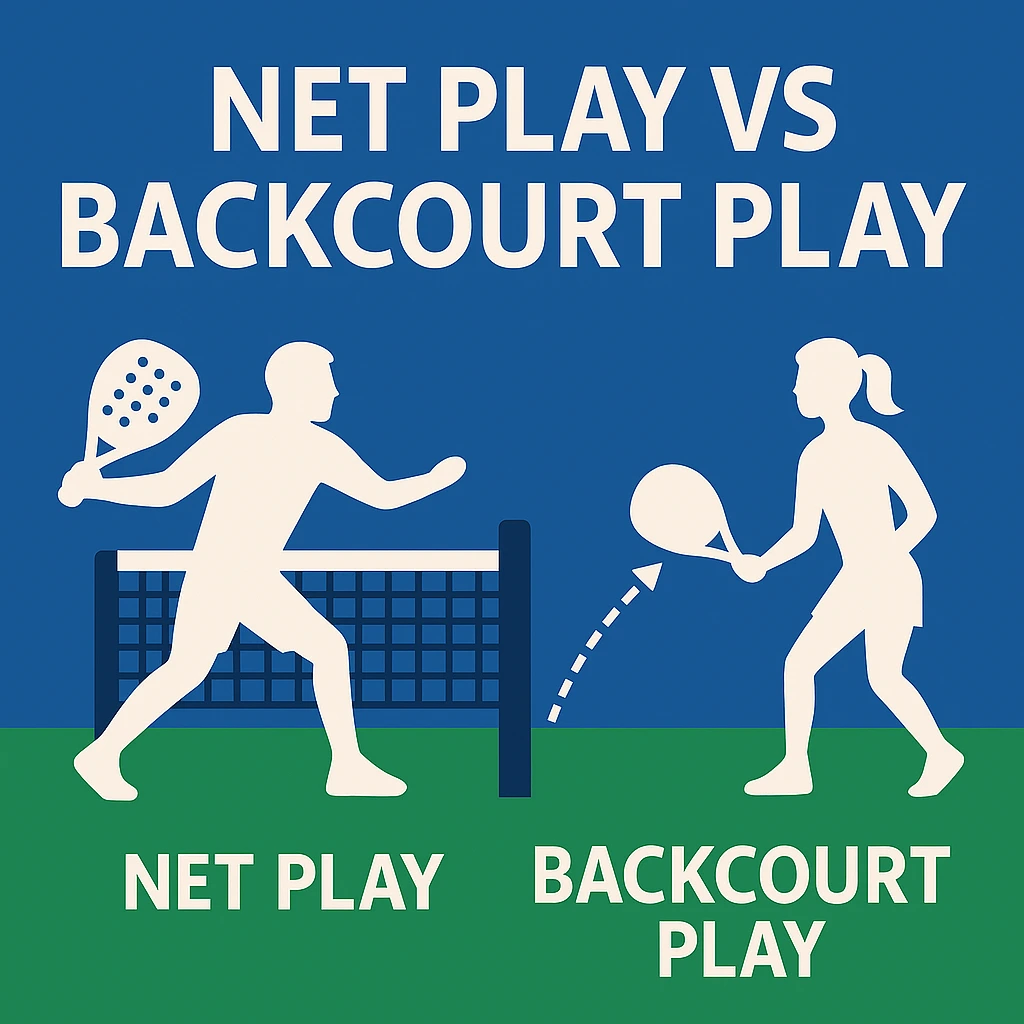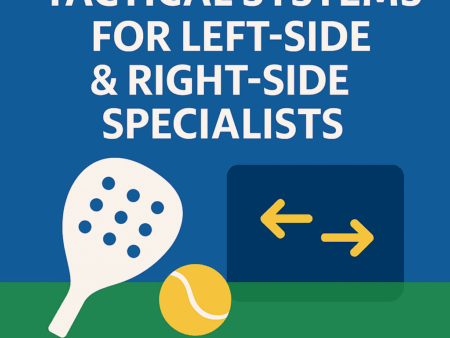The Ultimate Guide to Padel Betting

Understanding the difference between net play & backcourt play is essential for mastering padel strategy. These two zones define the entire flow of a match: one is the offensive powerhouse (the net) & the other is the defensive engine room (the backcourt).
This guide explains how each zone works, which shots to use, how movement changes between them & how both affect match outcomes.
Why These Two Zones Matter
Padel is positional. Teams constantly fight to gain or keep the net, because:
- 80% of points are won at the net
- Backcourt is mainly defensive
- Transitioning between zones determines momentum
Elite pairs dominate because they master both zones & the movement between them.
Net Play (Offensive Zone)
The net is the most dangerous & advantageous area in padel.
🔥 Characteristics of Net Play
- Fast volleys
- Overhead dominance (bandeja, vibora, smash)
- Constant pressure
- Ability to finish points
🎯 Goals at the Net
- Control the tempo
- Force opponents into defensive lobs
- Intercept balls early
- Finish points quickly
🧠 Key Skills Needed
- Aggressive volleys
- Touch shots near the net
- Overhead control under pressure
- Quick reactions & reflexes
- Anticipation & positioning
➕ Best Situations for Net Play
- After forcing a weak return
- After a strong serve
- After a successful chiquita
➖ Weaknesses at the Net
- Vulnerable to high lobs
- Difficult in windy outdoor matches
- Poor footwork leads to easy errors
Backcourt Play (Defensive Zone)
The backcourt is where rallies are built, pressure is absorbed & transitions begin.
🛡 Characteristics of Backcourt Play
- Defensive lobs
- Wall-based shots (rebote, double wall)
- Patience & consistency
- Low-risk shot selection
🎯 Goals in the Backcourt
- Defend effectively
- Reset difficult points
- Use lobs to remove opponent’s net control
- Wait for transition opportunities
🧠 Key Skills Needed
- Wall play mastery
- High, deep lobs
- Controlled groundstrokes
- Shot selection under pressure
➕ Best Situations for Backcourt Play
- When opponents dominate the net
- When under pressure in corners
- When playing outdoors with wind advantage
➖ Weaknesses in the Backcourt
- Hard to win points directly
- Requires high consistency
- Physically demanding in long rallies
Transitioning Between Zones
The transition zone is the space between backcourt & net — the most dangerous area.
⚠ Why It’s Difficult
- Balls bounce fast in this area
- Requires fast decisions
- Vulnerable to aggressive volleys
✔ How to Transition Properly
- Start with a deep lob or effective chiquita
- Move forward together as a team
- Watch the opponent’s reply — do NOT rush
- Take the net only when the ball is rising or played softly
Perfect transitions define elite padel.
🟫 Net Play vs Backcourt: Tactical Comparison
| Aspect | Net Play | Backcourt Play |
|---|---|---|
| Position | Offensive | Defensive |
| Goal | Win points | Reset points |
| Key Shots | Volleys, bandejas, smashes | Lobs, wall shots, resets |
| Risk Level | High | Low |
| Best Conditions | Indoors | Outdoors |
| Common Errors | Overhitting, poor footwork | Short lobs, wall misreads |
Style Matchups
Offensive (Net-Focused) Team vs Defensive (Backcourt) Team
- Indoors → offensive team advantage
- Outdoors → defensive team advantage
Two Offensive Teams
- Short rallies
- High pace
- Ideal for UNDER totals
Two Defensive Teams
- Long rallies
- Patience battles
- Ideal for OVER totals
How This Affects Betting
Net vs backcourt performance predicts:
- Match winners (net winners dominate)
- Over/Under totals (long rallies = overs)
- Handicap lines (net-heavy teams win big indoors)
- Live betting swings (gain/loss of net changes odds instantly)
Bettors should track:
- Who wins the net more often
- Lob quality from both sides
- Wall usage under pressure
- Transition success rates
Summary
Net play = power, pressure, point finishing.
Backcourt play = patience, defense, point building.
The battle between these zones defines padel strategy. The strongest teams master:
- Net dominance
- Backcourt resilience
- Smooth transitions
Next: Padel Tie-Break Rules.



